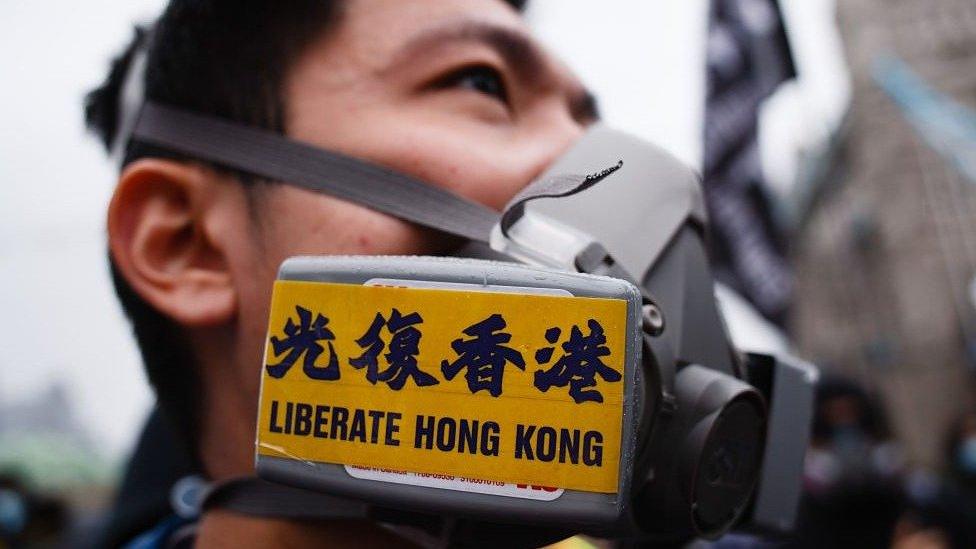John Lee: What Hong Kong can expect from 'Beijing's enforcer'
- Published
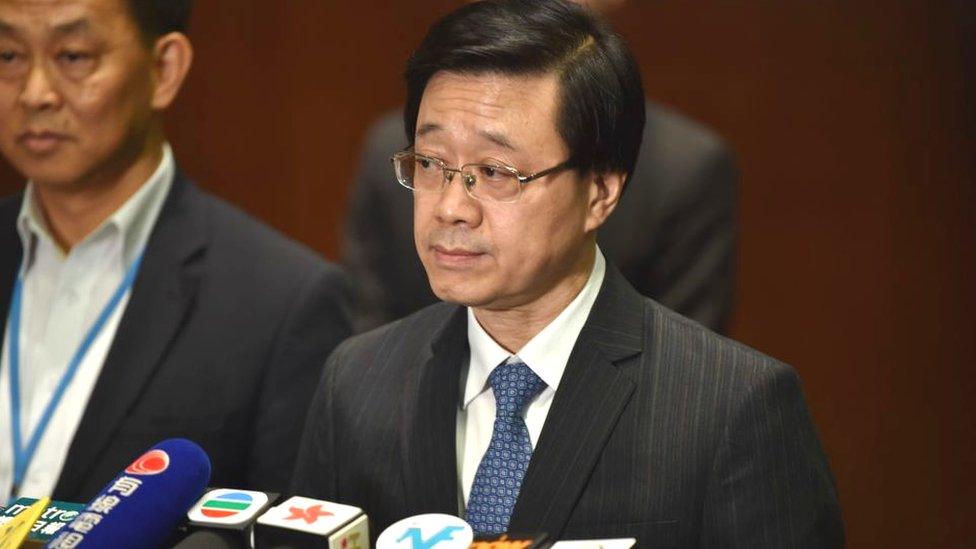
John Lee clinched Hong Kong's top role after running as the sole candidate in the closed-circle election
It is a turn of events that, to some, comes as no surprise.
This week, pro-Beijing hardliner John Lee was elected as Hong Kong's new leader, replacing Carrie Lam. The 64-year-old former security chief ran uncontested in the chief executive election, and was essentially handpicked for the role by a mostly pro-Beijing election committee.
With China increasingly clamping down on Hong Kong, his appointment is a clear indication of Beijing's desire to keep the city on a tight leash, say analysts.
Beijing's 'enforcer'
"John Lee's background is that of a policeman, a law enforcer," says Dr Ian Chong, a political scientist at the National University of Singapore.
He points out that Mr Lee oversaw the crackdown on Hong Kong's 2019 protests, and the introduction of the controversial national security law which prohibits acts of treason, secession, sedition or subversion against China.
"This suggests that Beijing places its view of law and order at the front and centre of ruling Hong Kong."
Professor Steve Tsang, Director of the China Institute at SOAS agrees, calling Mr Lee "Beijing's enforcer".
His appointment confirms that "Beijing intends to have its man in Hong Kong toe the party line and do what Beijing expects it to do."
Analysts also say Mr Lee's lack of popular support leaves little choice for him but to continue relying on Beijing to secure his political position.
"Given he was one of the top officials responsible for transforming the Hong Kong police from a respected local institution into the most hated and despised of government departments, this background does not give him much of a power base," said Prof Tsang.
"It means he does not have wide support and is beholden to Beijing for his office."
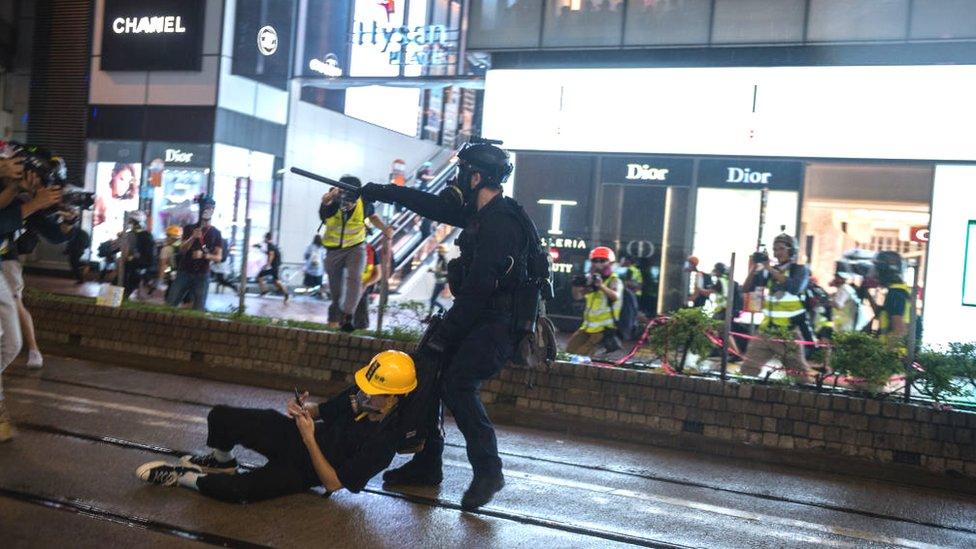
Protests against the extradition bill escalated into violence, with police use of tear gas and rubber bullets to disperse demonstrators
Mr Lee is not due to take the reins of power until 1 July.
But in the days following his selection, several individuals - including 90-year-old retired bishop Joseph Zen - were arrested for running a fund in 2019 to provide legal assistance to detained protestors, on suspicion that they broke the national security law.
Three of the others were former legislator Margaret Ng, pro-democracy activist Denise Ho, and academic Dr Hui Po Keung.
Freedom in the city
So what will Hong Kong look like under John Lee?
In a 44-page manifesto, external, Mr Lee pledged to strengthen governance and tackle chronic housing problems.
He has also pledged to enact legislation to bolster the national security law - a move that could potentially see him criminalising other areas not already covered under the Beijing-imposed law.
"It will be another indicator of a further erosion of Hong Kong's civil liberties," says Kwong Chung Ching, the campaigns coordinator of the Inter-Parliamentary Alliance on China.
In December last year, pro-democracy media organisation Stand News was raided by the police, and its senior staff arrested. Mr Lee had then announced that he supported the move. Numerous other independent news outlets have closed in Hong Kong - once a beacon of press freedom in Asia.
"Anybody who attempts to make use of media work as a tool to pursue their political purpose or other interests [and] contravenes the law, particularly offences that endanger national security, they are the evil elements that damage press freedom," Mr Lee has said.
Hong Kong is also more likely to become "more integrated into the mainland", says Prof Tsang. "The old Hong Kong, which existed prior to 2020, will not have a chance of re-emerging."
A return to former glory?
Mr Lee also faces the daunting task of restoring Hong Kong's status as a glittering hub for business and finance, something he vowed to do in his manifesto.
The massive, sometimes violent, protests that erupted in 2019 scared away tourists and spooked investors. Stringent Covid restrictions felled the economy further, resulting in a 4% economic contraction , externalin the first quarter of 2022.
According to Eurocham, a net 130,000 people have left Hong Kong since 1 February, with employers reporting difficulties in attracting talent back into the city. Nearly half of all European businesses, external and 44% of US businesses, external in Hong Kong are considering relocating in the next year.
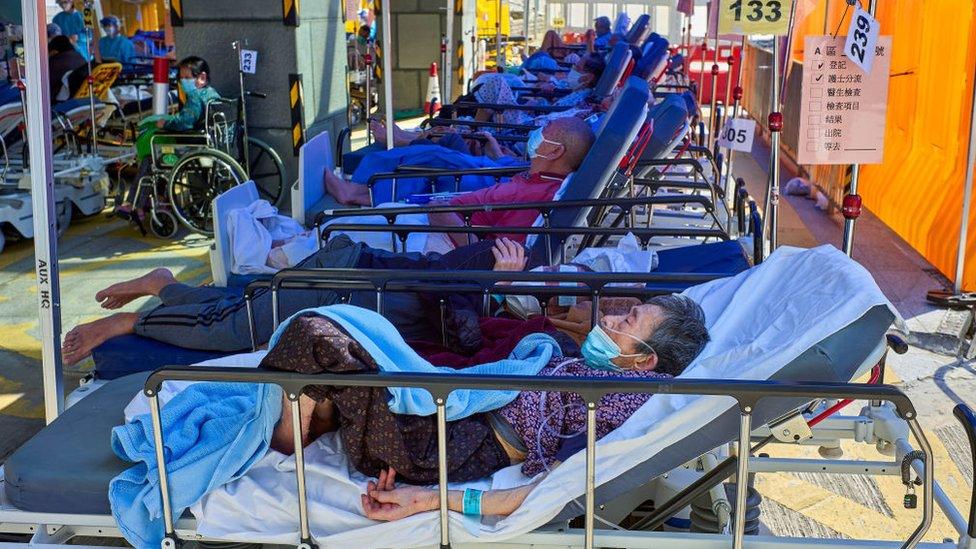
Hong Kong recently endured one of its worst Covid outbreaks so far, leading to a shortage of hospital beds
With a career in the police force spanning more than four decades, Mr Lee stands in contrast to previous chief executives who had backgrounds in business and the civil service.
Analysts say it remains to be seen whether he will be able to repair Hong Kong's reputation.
Dr Chong argued that a return to business confidence would require a degree of freedom of information and a restraint on authority.
"Hong Kong used to be able to provide that in ways that the mainland could not," he said.
Furthermore, Mr Lee's appointment raises questions as to whether he will be expected to fall in line with China's zero-Covid policy, as Hong Kong battles one of its worst outbreaks yet.
The city has charted 5,600 deaths in the first quarter of the 2022 alone, compared to just 200 in the first two years of the pandemic, exacerbated by low vaccination rates amongst the city's elderly.
"As long as [Chinese President] Xi insists on zero-Covid, Mr Lee will be expected to implement it, though he has some latitude to reduce its adverse effects," says Prof Tsang.
But analysts say achieving zero-Covid - or some approximation of it - is a goal that appears to run contradictory to Mr Lee's pledges to re-open the country.
Dr Chong says: "Mr Lee has stated an intention to open up - but how to square these two cross-cutting demands and in what timeframe is less clear."
You may also be interested in:
From protests to 'patriots': Why China is bent on crushing Hong Kong dissent
- Published1 July 2022
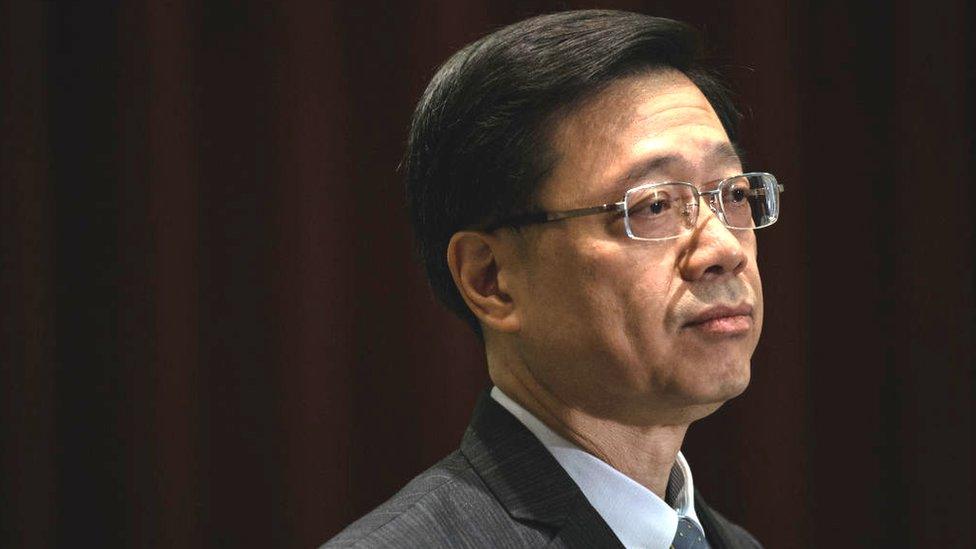
- Published21 May 2020
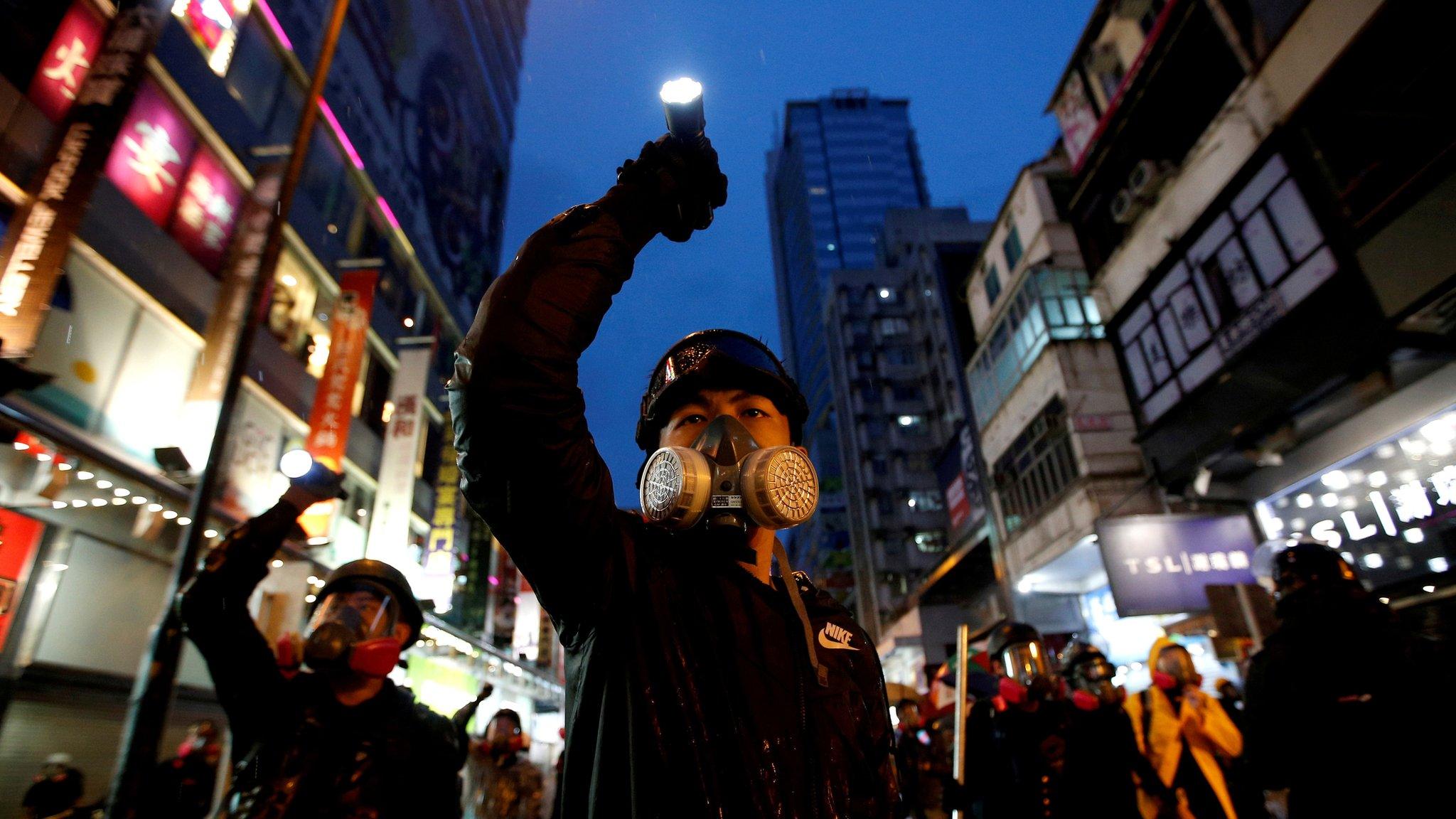
- Published19 March 2024
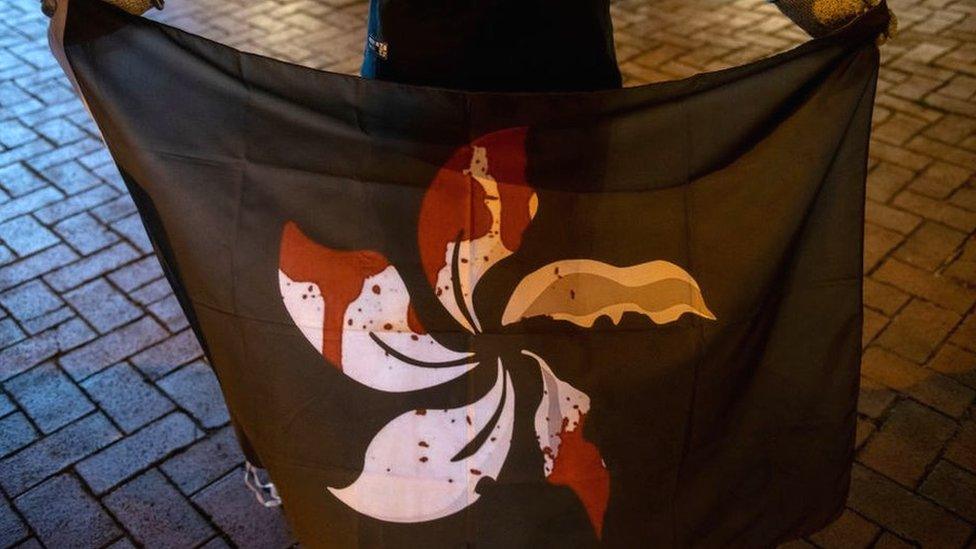
- Published26 May 2021
